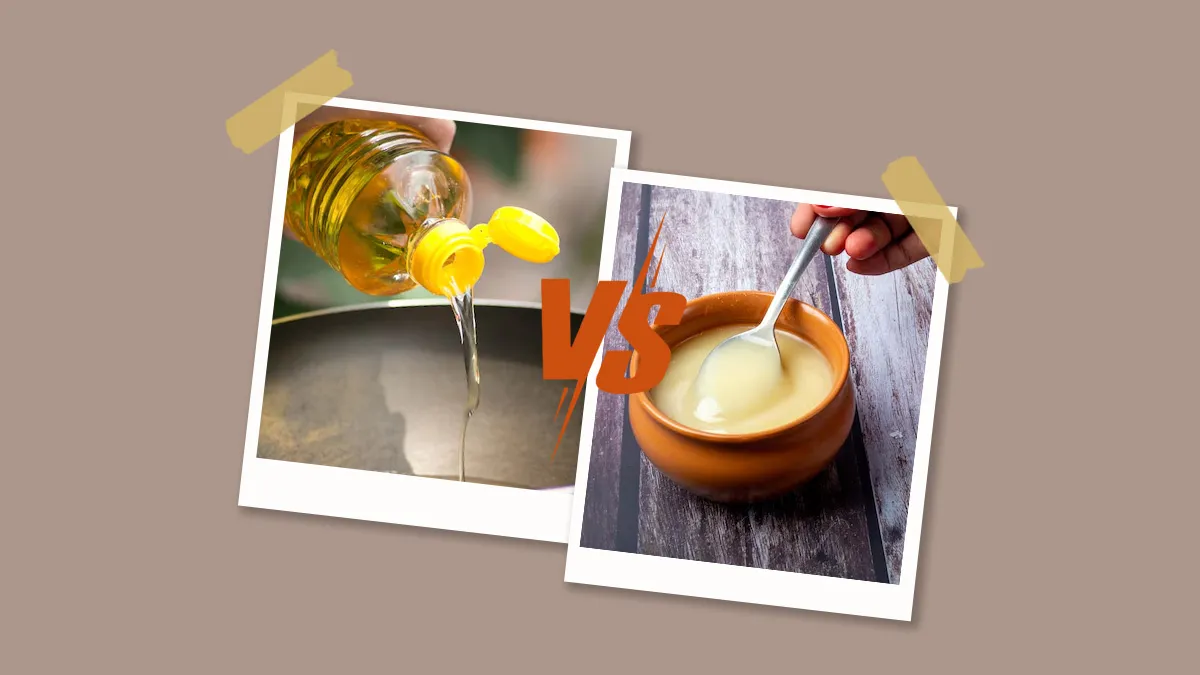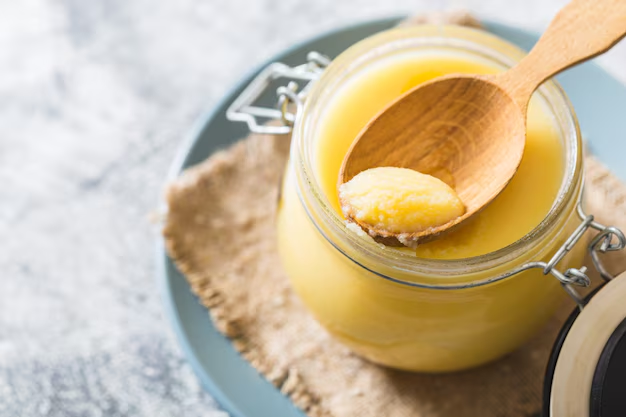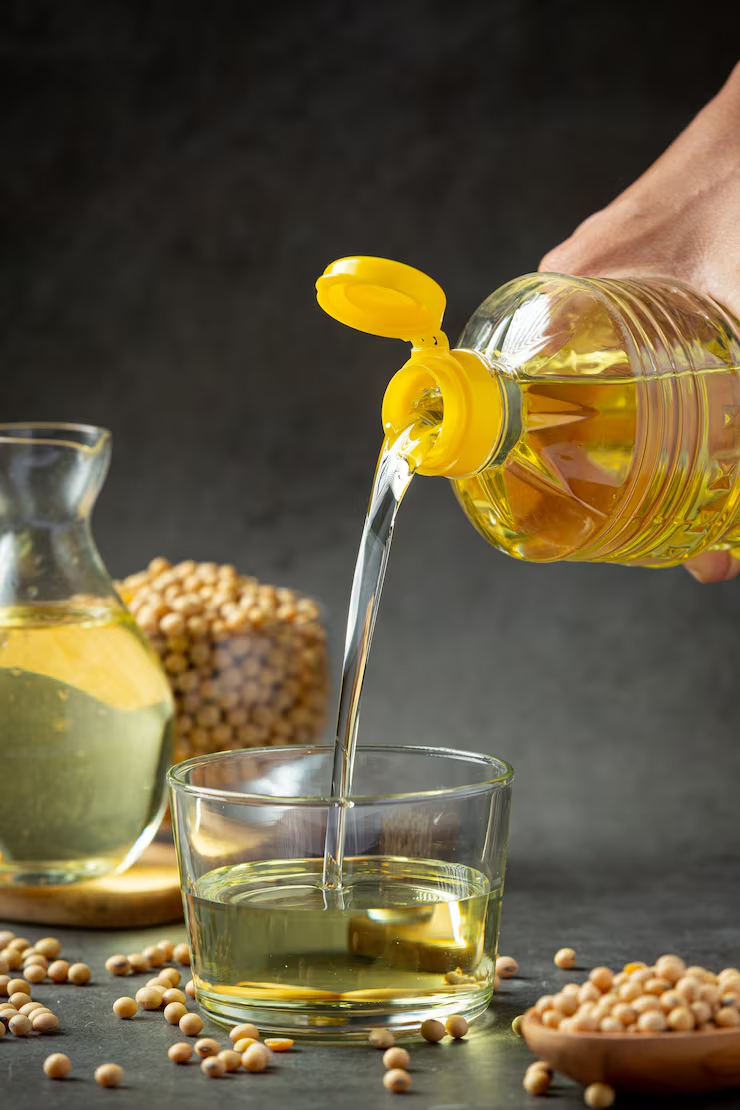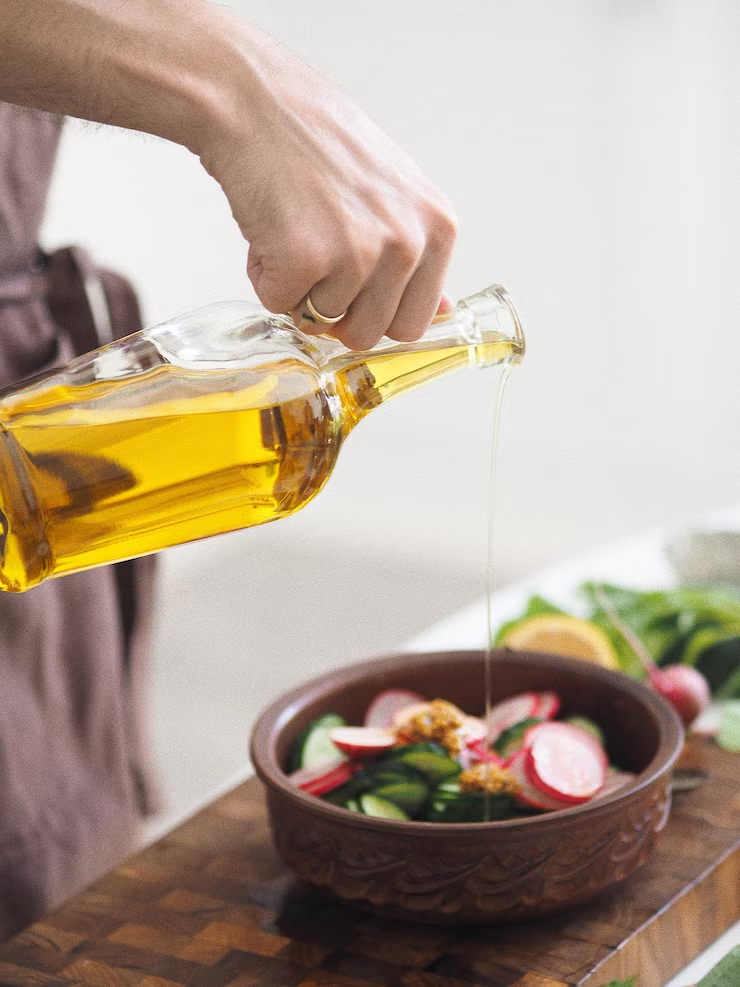
When it comes to daily cooking, one question that often comes up in households is whether to use ghee or oil. Both have their own benefits, flavours, and health effects. While ghee has been a part of traditional Indian kitchens for centuries, modern cooking often leans towards using oil. But which one is truly better for your everyday meals? Let’s break it down in simple terms.
Ghee is clarified butter, made by slowly simmering butter until the water evaporates and the milk solids are removed. It’s deeply rooted in Indian cooking and Ayurveda, where it’s considered sattvic (pure). Ghee has a nutty aroma and a rich taste that enhances dishes like dals, parathas, and even desserts.
Cooking oils come in many varieties, like sunflower, canola, mustard, olive, and more. Each has its own smoke point, flavour, and nutritional profile. Most oils are plant-based and are commonly used in frying, sautéing, and baking. The health impact of oil depends on its type, refined or cold-pressed, saturated or unsaturated.

Ghee has a high smoke point (around 250°C), according to a 2020 research, which makes it suitable for high-heat cooking such as deep frying and sauteing. Many refined oils also have a high smoke point, but cold-pressed oils like olive oil have lower smoke points and are better suited for light cooking or dressings.
If you cook at high temperatures frequently, ghee might be a safer and more stable choice since it’s less likely to break down into harmful compounds.
Ghee contains fat-soluble vitamins like A, D, E, and K. It’s also rich in butyrate, which supports digestion and gut health. However, it is high in saturated fat, which some people may need to monitor.
Cooking oils, particularly unsaturated ones like olive or sunflower oil, are known to support heart health. “Studies indicate that olive oil intake can confer various health benefits in addition to reduced CHD risk”, states the National Institutes of Health (NIH) study. They are lighter and lower in saturated fats but often lack the micronutrients found in ghee unless fortified.

Choosing between ghee and oil often depends on personal health conditions. For example, someone with high cholesterol may prefer unsaturated oils, while someone looking to improve digestion may benefit from moderate ghee intake.
Don't miss: 3 Signs of Hair Fall from Vitamin Deficiency, Explained by Dermatologist
When it comes to flavour, ghee undoubtedly offers a more distinct and traditional taste. It’s ideal for Indian curries, rice dishes, and rotis. Oils are more neutral, making them better for dishes where you don’t want the fat to dominate the flavour.
-1753884380700.avif)
Some people use both in their cooking routine, ghee for tadka and rice, oil for salads or stir-fries, allowing them to enjoy the benefits of both.
Don't miss: Tulsi Tea Vs Ginger Tea: Which One Is Best For An Immunity Boost?
Deciding between ghee and cooking oil often comes down to personal preference, the method of cooking, and your own health considerations.

Ghee is best enjoyed in moderation, especially for its taste and digestive benefits. If you enjoy traditional Indian food and cook at high temperatures, ghee might be your best bet. But if you're watching your weight or heart health, switching to unsaturated oils may be the smarter option.
Oils, when chosen wisely (like cold-pressed or unrefined versions), can offer essential fatty acids and heart-friendly benefits.
Note: Please consult a nutritionist or healthcare professional before making any major changes to your diet.
For more such stories, stay tuned to HerZindagi.
Image credit: Freepik
Also watch this video
Herzindagi video
Our aim is to provide accurate, safe and expert verified information through our articles and social media handles. The remedies, advice and tips mentioned here are for general information only. Please consult your expert before trying any kind of health, beauty, life hacks or astrology related tips. For any feedback or complaint, contact us at compliant_gro@jagrannewmedia.com.